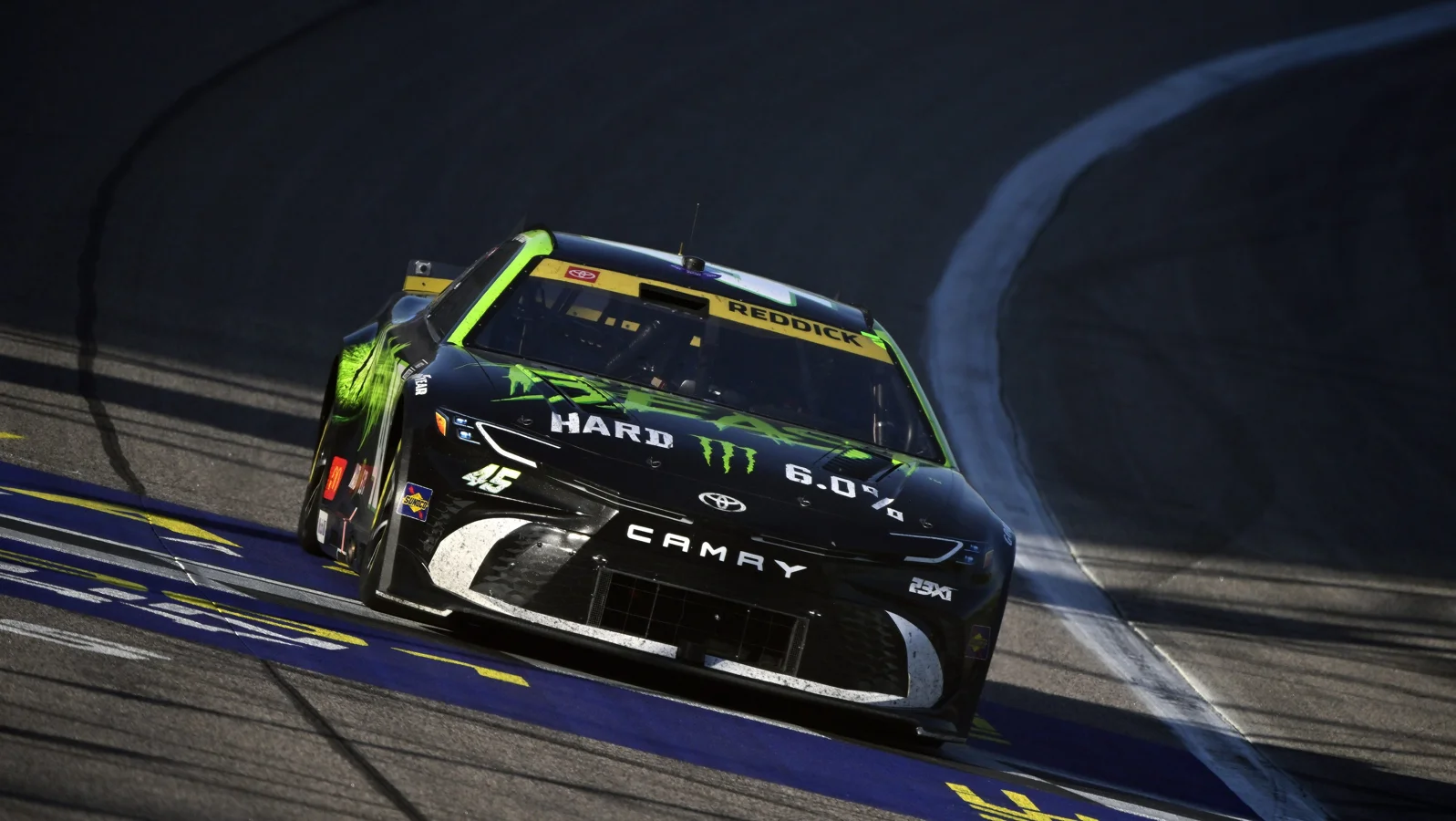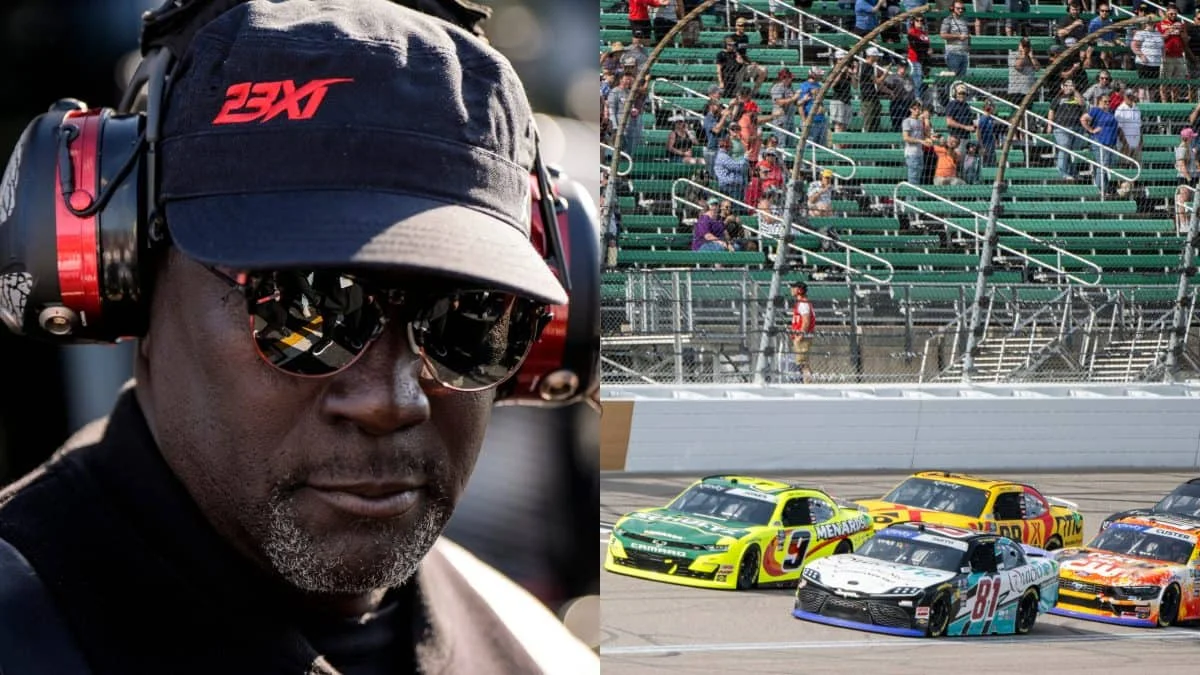NASCAR submitted a request for summary judgment to the U.S. District Court late Friday in an effort to end the ongoing legal battle involving 23XI Racing and Front Row Motorsports. This legal action highlights the growing tension over the 23XI Racing NASCAR lawsuit, with NASCAR insisting the process should wrap up swiftly to allow focus to return to the track and the approaching 2026 season.
According to filings, NASCAR argued that resolving the lawsuit would let the organization and its partners concentrate on
“exciting racing on the track for the remainder of 2025 and planning can begin for a pivotal 2026 season”
—suggesting a preference for stability moving forward rather than continuing toward the set trial date of December 1.
In its statements, NASCAR stressed,
“should come to an end (as the garage wants),”
noting support from several teams for the existing charter system. NASCAR also claimed,
“Today’s filing demonstrates that NASCAR’s charter system has the support of race teams throughout the garage, and that the 23XI Racing and Front Row Motorsports lawsuit is not in the best interests of the sport,”
and described the legal challenge as an attempt to renegotiate an agreement honored by most others.
Support for NASCAR’s Charter System From Key Owners and Executives
Declarations filed with the court included endorsements from prominent Cup car owners such as Rick Hendrick, Roger Penske, Richard Childress, and Joe Gibbs, all arguing that the charter system is vital for the health of the sport and the organizations within it.
Joe Gibbs, underscoring the need for a swift and amicable end to the dispute, stated,
“The most important thing to me is that this lawsuit is resolved amicably, quickly, and in a manner that preserves the Charter system and the long-term viability of our incredible sport,”
and further emphasized,
“That must happen to ensure the health, happiness and prosperity of our many hundreds of employees and their families. Nothing matters more to me.”
He reflected the concern that continued legal uncertainty could harm everyone dependent on NASCAR’s operations.

Rick Hendrick added his perspective in a court declaration, saying,
“The Charter Agreement is critical to the stability of the NASCAR ecosystem – the teams, the businesses that support us and NASCAR itself. Without this framework in place, I question the long-term viability of the teams, including Hendrick Motorsports, and do not believe we would be able to survive. Undoing what we have collectively negotiated will not only result in immeasurable damage to our sport and our respective businesses, it will, most importantly, hurt the people and families that depend on us for their livelihoods.”
NASCAR’s position emphasized collaboration with race team partners and insisted,
“Together with our race team partners, we remain committed to delivering the best of stock car racing to our fans every weekend through our championship on Nov. 2, including this Sunday on the Roval at Charlotte Motor Speedway.”
Concerns Over Potential Changes and Industry Uncertainty
Presiding Judge Kenneth Bell previously urged both parties toward a settlement, hinting at the broad changes a win by 23XI Racing and Front Row Motorsports might bring. In his August comments to both sides, he noted,
“Well, if the plaintiffs prevail at trial, there are a whole host of equitable remedies available to the Court,”
and explained that significant aspects of NASCAR’s operations could be reworked—ranging from sales of tracks to alterations of exclusivity and noncompete provisions.
Judge Bell warned that even if the charter system remains, its form could dramatically shift, resulting in major uncertainty for everyone involved. He remarked,
“Sponsors don’t know, drivers don’t know, broadcasters don’t know. Because if plaintiffs prevail, NASCAR is going to look very different. And that’s a lot of uncertainty for everybody. If plaintiffs don’t prevail, everybody’s got certainty. You ain’t racing with a charter. Nothing about their business is going to change. But nobody knows that until sometime mid-December.”
With a potential ruling expected only after the jury’s decision in December, employees, sponsors, drivers, executives, team owners, and families throughout NASCAR face a prolonged period of instability.
23XI Racing and Front Row Motorsports Defend Their Position
Following NASCAR’s court filing, attorney Jeffrey Kessler, representing 23XI Racing and Front Row Motorsports, maintained that the teams do not seek abolition of the charter system but rather aim for reform. Kessler asserted in a statement,
“We are confident NASCAR’s summary judgment motion is not going to succeed. This lawsuit has always been about making NASCAR more competitive and fair for the benefit of drivers, sponsors, teams, and fans who love the sport. NASCAR’S new motion changes nothing and we look forward to presenting our case at trial on December 1.”
Kessler pointed out that declarations from other owners actually recognize the necessity of the charter framework but argued that this does not excuse what he called NASCAR’s
“anticompetitive conduct or its unlawful monopoly.”
He reiterated that resolving the legal challenge is a shared goal among many teams, but suggested NASCAR had not been willing to engage in substantive settlement discussions.
Next Steps and What Lies Ahead for the Sport
While 23XI Racing and Front Row Motorsports filed their own motion for summary judgment against NASCAR’s counterclaims on September 13, a hearing on that matter is scheduled for October 21, leaving the outcome and direction of the 23XI Racing NASCAR lawsuit uncertain. The future of the charter system—and the stability of NASCAR as a whole—hinges on the result of these court proceedings, with significant implications for employees, sponsors, businesses, and fans awaiting clarity as the year draws to a close.
The stakes remain high for every party involved. Until the court determines a resolution, the entire industry faces unresolved questions about how the upcoming seasons, including the remainder of 2025 and planning for 2026, will unfold for race teams, owners, and the broader stock car community.
